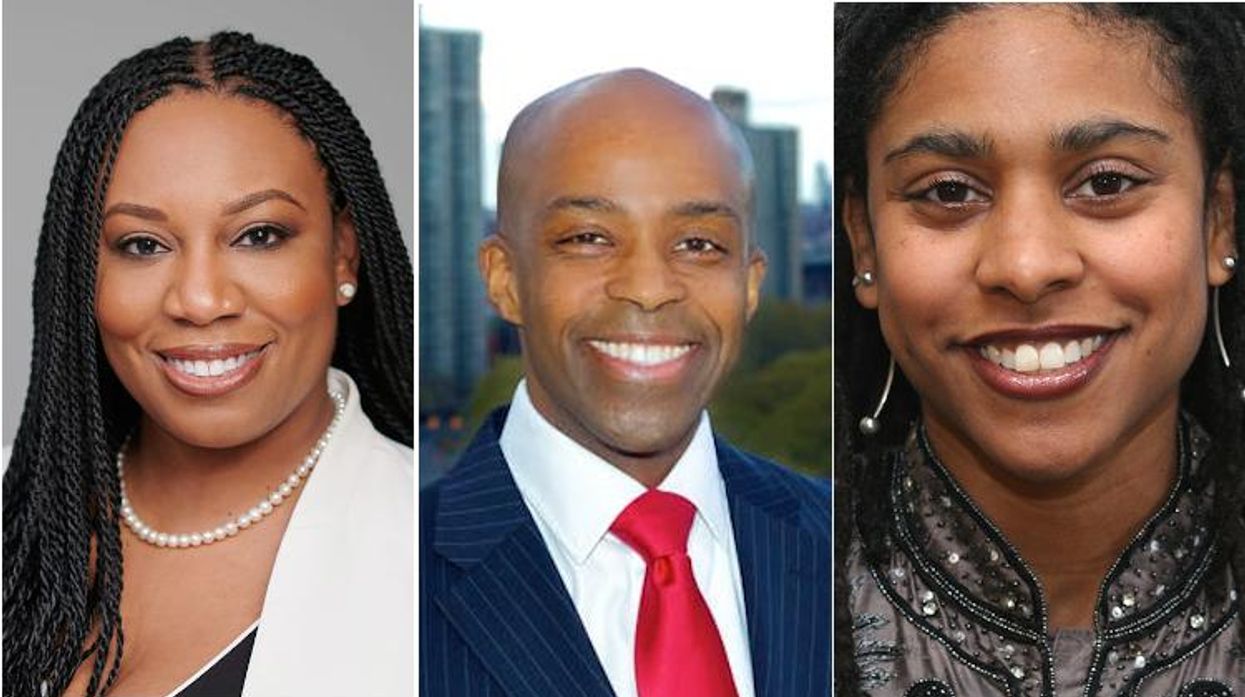The election of Kamala Harris as the first female, Black, South Asian vice president was a joyous and noteworthy event. Indeed, the Biden administration has already shown itself to be the antithesis of the blatant racism of the previous four years. New leadership demands new ways of operating, new ways of governing, and new ways to confront systematic racism.
We can say in our own community that we've only recently begun to address bigotry within our ranks, and that includes Black executive leadership in the LGBTQ+ movement.
For the first time in history, three of the national legacy LGBTQ equality organizations (National LGBTQ Task Force, Human Rights Campaign, and National Center for Lesbian Rights) will be led by Black executive directors. This has been a demand from activists of color for decades and is the result of a lot of hard work that included protests, marching, and intentional bench building within and across social justice movements in the country. With fixing racial inequity a major priority for the Biden/Harris administration and a continuing patchwork of civil rights laws across our country, their leadership of these organizations come at an opportune time.
That was the focus of the first panel discussion at last week's National LGBTQ Task Force "Creating Change" conference which featured several Black LGBTQ leaders, including Kierra Johnson of the National LGBTQ Task Force, Alphonso David of the Human Rights Campaign, and Imani Rupert-Gordon of the National Center for Lesbian Rights. The session was moderated by the National Black Justice Coalition's executive director, David J. Johns.
What stuck out during some very honest and profound remarks was how our own attitudes have shaped our ideas about Black executives and leaders in the LGBTQ+ movement. The very thought that these individuals are "firsts" is at once alarming and embarrassing -- why have we, as a generally open-minded community, been so lax in installing Black leadership?
"We have to remember that we've never been here before, and as Black leaders, we're creating solutions we haven't seen before," said Rupert-Gordon. "In order to support Black leaders, people need to remember that we are 'firsts,' and that it's harder to run an organization as a Black person, when that hasn't happened before."
Rupert-Gordon explained that when white people speak of racial justice, they are praised, but when Black people speak about it, well, that creates a different reaction. "Intersectionality and understanding how a person's social and political identities creates different means of discrimination and privilege are really important," she pointed out.
"I may be first, but I won't be the last," she continued. "What we can do to make that a reality is to make changes that are transparent, and changes to tackle some of the most underrepresented issues within the Black community. We need to ask people that we haven't asked before what the solutions to our problems are -- let's make it better. In the past, there was a lot that was done badly. By listening to new and different folks, we can't do much worse than what we've done before."
David had a frank perspective about why Black leadership has lagged. "In our community, we are harboring bias. I have been an out gay man for a long time, and I've felt it against me, and as an immigrant as well. And, it's by the very same folks that label themselves progressives and liberals."
In order to overcome the prejudice, David suggests that we think outside ourselves. "We need to put ourselves in the shoes of a Black man in the South who has HIV but can't get the adequate treatment for it. Or transgender women, who out of fear can't return home, and as a result are in incredible danger and more likely to be beaten or killed. We need to get to that place of liberation, where we see marginalized people above ourselves, and recognize the plurality of our community."
For Johnson, leadership is about being heard and recognized. "We are told over and over again that we can't take on leadership, that our vote doesn't matter, that we don't matter. You are not of consequence. And that comes from laws, the government, the media, family, schools and even within our own LGBTQ movement."
Johnson feels that the call to action for present and future Black LGBTQ leaders is to define your own leadership style and voice. "I have spent last 20 years not trusting myself. I've silenced my voice because I thought I wasn't good enough. I didn't feel that I could create change, that I wasn't worthy enough to talk to legislatures or other leaders, and that I couldn't provide access for others because I felt I lacked stature.
"It's amazing how those gremlins weigh on all of us as people of color. In 2021 queer women and transgender folks of color need to reinforce, for each other, that we're worthy to make the change and take the lead. We need to help each other by providing an open door," Johnson believes. "I've already walked in. And now, I get to be my own leader, and bring what I've learned to my role. My perspective is different and therefore my leadership will be, and that's a new day for all of us. And, I'm excited for new days and years ahead for all of new and future Black leaders."
John Casey is editor at large for The Advocate.
















Charlie Kirk DID say stoning gay people was the 'perfect law' — and these other heinous quotes
These are some of his worst comments about LGBTQ+ people made by Charlie Kirk.